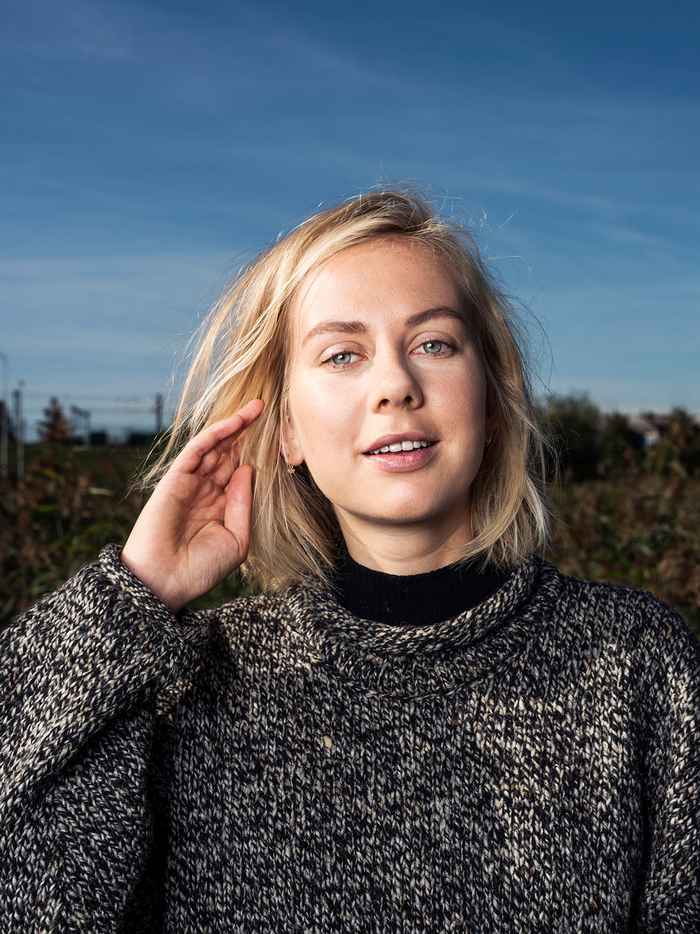Pleun Aarts

Who: Pleun Aarts (1995)
Studied: Bachelor in Future Planet Studies, Master in Biological Sciences, track: Ecology and Evolution
First job: At an ice cream parlour in Utrecht
Favourite spot at the UvA: The coffee corner at Science Park; a woman named Sjeel works there. She is very sweet and always remembers your name and drink order.
Essential: A statistics book
Pleun Aarts (1995) is a Biological Sciences Master's student. A passionate camping enthusiast and nature lover, Pleun comes from a large family with a background in the exact sciences. Having earned a Bachelor's in Future Planet Studies, however, she ultimately settled on a combination of exact and social sciences and followed the Ecology track. The welfare of our planet and sustainability are issues close to her heart. Pleun is currently pursuing a specialisation through the two-year Research Master's in Biological Sciences.
You're a nature lover who chose to study at the UvA in a bustling major city. Tell me about that.
‘I was certain that I wanted to come to Amsterdam. I love that there's always something going on in the city, I'm interested by people who don't feel the need to conform all the time. The UvA has a friendly, cosy feel to it, thanks in part to the buildings at the Science Park. I feel at home there: it's comfortable, light and airy, and it's easy to find people. But people's relationship with nature fascinates me as well, as does the way in which nature has adapted in response – how it shows a certain resilience. The future of the Earth and sustainability were things that always interested me anyway, and a lot of the Future Planet Studies programme centred on those issues.’
Biological Sciences offers the perfect mix of theory and practice.
Is this a programme that involves a lot of individual study indoors? Or are you sometimes ‘released into the wild’, too?
'Well, biology is a fairly concrete and more or less 9-to-5 field. The programme involves a lot of collaboration. I like that; it's much more enjoyable than sitting in the library reading books by myself. There was a lot of applied learning. So yes, I spent some time in front of the computer, but luckily there were also frequent outdoor activities. For instance, we once spent a week in Northern France, where we had to set up our own experiment to study how a specific type of seaweed grew along the entire coastal gradient. We also spent eight days doing paleo-research in Drenthe. Paleo-research is like archaeology, but with nature. By looking at pollen that's thousands of years old, you can determine what the climate was like in the past and how the landscape must have looked then. During the day, we walked through the woods identifying plant species, and in the evenings we sat bent over our microscopes, drinking beer. For me, it was the perfect mix of theory and practice.’
I feel at home in the Science Park.
Is your Master's providing enough tips and tools to help you achieve your ambitions?
‘My Master's programme is a two-year Research Master's. For the first six months, you take courses, after which you conduct two large experimental research projects and do a literature review. I just completed my first experimental research project, which was about common garden snails and how they have adapted to the urban setting in Amsterdam. The study was a “citizen science project”, which means members of the public could take part as well. I spent one week working on the experiment with an elementary school class. While the results weren't scientifically sound enough to use in my study, the children were extremely enthusiastic. I noticed that I enjoy telling stories and drumming up enthusiasm, so that's something I'd like to do more of, which is why I'm also currently taking a course in scientific journalism. I don't necessarily want to become a researcher myself, even though I think it's important and interesting.’
You're dealing with sustainability and the future of the Earth.
Name a ‘learning’ moment you will never forget.
‘When I started Biology, we took an introductory weekend trip to Texel. During the first lecture for that course, we watched a video about cannibalism. It explained that it's actually a very normal phenomenon that's quite common in nature. And suddenly I thought it was all incredibly cool. That moment made it clear that mathematics isn't a purely abstract discipline, because it can be applied to things like cannibalism in an extremely concrete way. When you do that, subjects like maths become much more tangible, because you understand how they connect to less-abstract matters. That's something I'll never forget.’